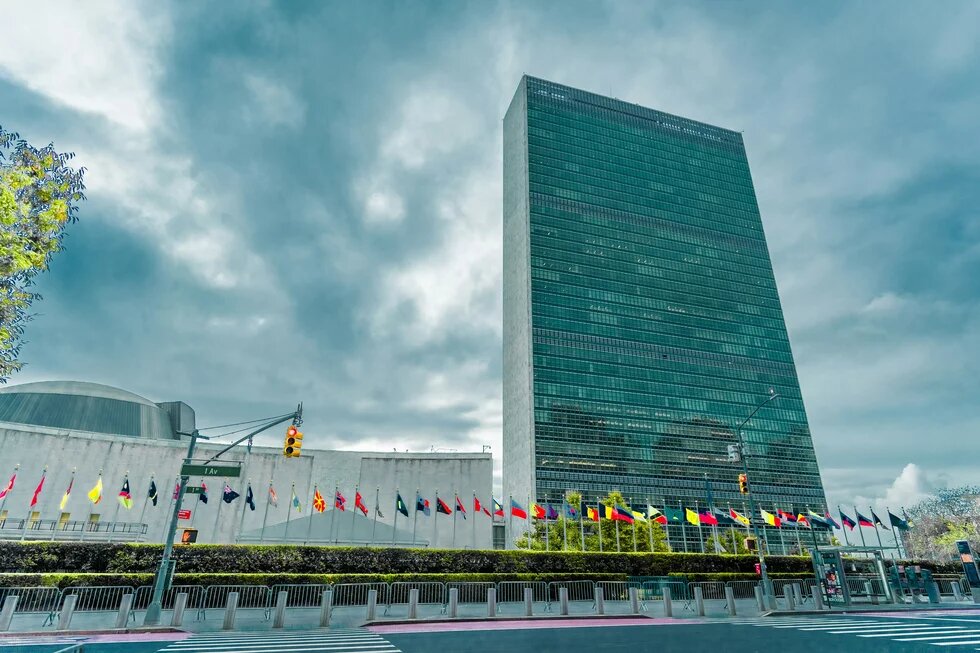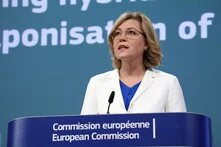Digital technologies are now a global priority, like security and climate change. The 2024 UN Summit of the Future brings the Global Majority into internet and AI governance. The UN Convention on Cybercrime may do the same for cybersecurity. At the same time, the centralization at the UN risks empowering governments and undermining human rights.

It may end up that 2024 will be the year in which digital technologies officially joined the ranks of pressing issues for humanity that require global action akin to security, development and climate change. From the information society and Artificial Intelligence (AI) to cybercrime, the United Nations has emerged as a central stage for negotiating the terms for a new era of global digital governance.
The Global Digital Compact (GDC), adopted at the UN Summit of the Future in September 2024, is one building block of this new era. The document addresses internet governance and AI with the aim to close the widening global digital divides. It was published as an annex to the broader Pact for the Future, which also addresses all of the other above-mentioned global issues. The UN Cybercrime Convention – which is expected to get adopted after a vote by the UN General Assembly later this year – will be the first UN treaty on combating cybercrime and could create much-needed access to resources for the Global Majority (also referred to as the Global South).
Most observers would probably agree that the hard-won compromise on the Pact for the Future is a “modest win for multilateralism,” as it was described in a blog post by the US-based Center for Global Development. The same argument could be made about the Cybercrime Convention. At a time of escalating military conflicts and strategic rivalry, consensus documents at this level would certainly be an achievement some countries may yet opt not to be party. Russia and Iran were among 7 countries that decided to stay out of the Pact for the Future. The U.S. and European governments engaged in the cybercrime negotiations, but may not vote for the final result.
For digital governance, just as with the Sustainable Development Goals or international efforts to combat climate change, the goals are ambitious, yet very difficult to reach as resources for international cooperation are shrinking. Centralizing processes at the UN also comes with risks: It strengthens the role of nation-states over other actors, and it provides an opportunity for anti-democratic forces to challenge previously established norms and the application of human rights law. In both processes, civil society organizations pushed for stronger commitments to human rights and the green transition. However, in the end, it was governments that dominated the discussions and decided on the trade-offs.
The GDC contains a strong signal for multilateral inclusion by firmly linking the commitment to close digital divides to the Sustainable Development Goals. It also brings the Global Majority into the AI governance conversation, which is so far dominated by North American and European-led initiatives in forums like the G7 or the OECD.
The UN’s efforts will only be credible if they provide tangible benefits for the countries that have so far been sidelined in the AI revolution. The GDC calls to set up a “Global Fund on AI” without explaining how this funding would materialize. Based on the recommendations of a high-level advisory body, it announces the creation of an international scientific panel on AI, modelled on the Intergovernmental Panel on Climate Change (IPCC). The analogies to climate change cooperation and financing seem ironic, given the lagging political will and cuts or weakening of climate goals for the digital transformation in the revision process that led to the final version of the GDC.
At the same time, the “UN power grab” has placed states in the driver’s seat in a policy field that has so far stood out for being shaped by a diverse group of actors in a multistakeholder approach. “Internet governance” – as it used to be called – started from a very different place. In the early years, its main task was to set technical norms for the new technology – but even those norms have become politicized, with power struggles in standardization bodies, notably at the UN’s International Telecommunications Union (ITU), between China and Russia on one side and the United States, the EU and its allies on the other.
The political dimension of internet governance has evolved since 2003, when all 193 UN states agreed at the first World Summit on the Information Society (WSIS), hosted at the headquarters of the ITU in Geneva, that the global information society had to be “people-centred, inclusive and development-oriented.” From this consensus emerged the multistakeholder model, which was institutionalized in the Internet Governance Forum (IGF) at the second WSIS in Tunis in 2005. The IGF mandate is up for renewal at the WSIS+20 Review conference in 2025.
The final version of the GDC expresses prominent support to the Forum in principle. In addition, civil society played a very visible and active role at the Action Days preceding this year’s Summit of the Future. Yet, a strong funding commitment for a future IGF is lacking, and the GDC fails to explain what the future role of the IGF would be alongside new powerful UN institutions, such as a proposed UN AI Office in New York. Many IGF stakeholders – from governments, private sector and civil society to academia and the technical community – complain that the GDC drafting process was tightly controlled from New York. It remains unclear whether civil society was able to shape the documents and to what extent it will be empowered to shape the process down the road.
For liberal democracies and their civil society allies it was a success that the Pact for the Future as well as the GDC contain strong commitments to human rights (comparing the revisions reveals how contested these had been). In the future, stakeholders will be able to emphasize the new commitments for all members as new challenges arise in global digital governance.
The same cannot be said about the UN Cybercrime Convention. As the GDC was for digital governance, it would be the first truly global agreement in the area of combating cybercrime. So far, the leading agreement in this area has been the Budapest Convention under the Council of Europe, an international human rights organization with EU and non-EU member states. The latter convention, with 68 parties, has international reach, but lacks legitimacy in many parts of the world and is seen as a Western-led framework.
The UN Cybercrime Convention was initiated by Russia in a clear attempt to give states broad powers to investigate and prosecute all sorts of crimes defined by them. In many countries, these could include the criminalization of gender orientation or online dissent. Policymakers across the EU, in the U.S. and other liberal democracies now face the difficult decision whether to reluctantly sign on to an agreement, which they have co-shaped to include human rights provisions, but which a broad alliance of private sector and civil society actors still criticize for its broad crime definitions and weak safeguards that could enable human rights violations.
Digital technologies are entangled with questions of hard power, resource distribution and the systemic competition between democracies and authoritarian systems. Nostalgia for the times when internet governance stood for the democratic management of a liberal global network society does not help – especially since many groups and parts of the world were not part of this original vision.
Democracies should support processes that can lead to broader global inclusion – as long as they are willing to buffer them with credible access to resources for countries that are sidelined in the digital economy. They also have to lead by example in showing that true inclusion means having non-state actors at the table. The year – leading up to the WSIS Review and potentially to the implementation of the Cybercrime Convention after its adoption – is a good time to ensure that activists and watchdogs get additional protections in an era of increasingly state-led digital governance.
Read Sabine Muscat's policy brief "A Digital World Worth Living For: A Green compass for a human-centric international digital policy".
This article first appeared here: us.boell.org
The views and opinions in this article do not necessarily reflect those of the Heinrich-Böll-Stiftung European Union.

